Former Pope Benedict XVI dies at 95, first to resign in 600 years
Retired Pope Benedict XVI, who led the Catholic Church from 2005 to 2013 before resigning, has died aged 95. The Vatican says his funeral will be on Thursday.
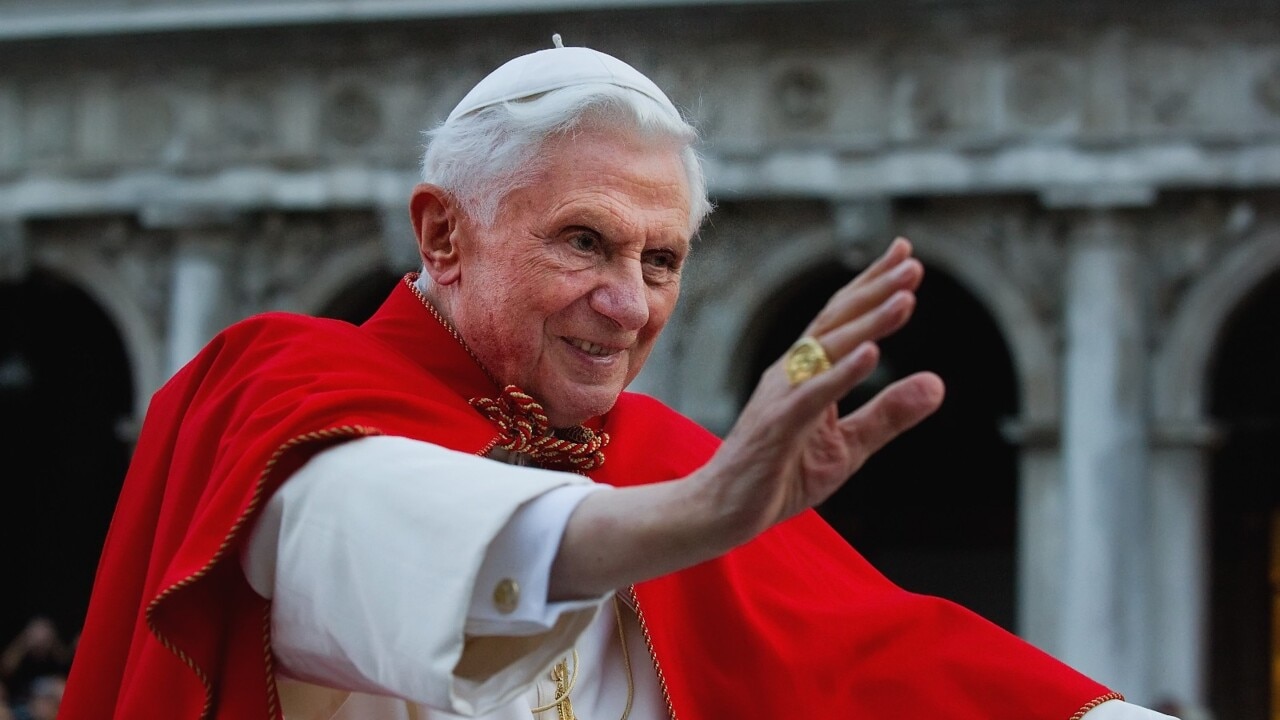
Retired Pope Benedict XVI, who led the Catholic Church from 2005 to 2013 before becoming the first pope in nearly 600 years to resign, has died aged 95, the Vatican said tonight.
Pope Francis will lead the funeral on Thursday, January 5, the Vatican says.
Pope Francis said on December 28 that his predecessor was very sick, and Vatican spokesman Matteo Bruni told reporters that Benedict’s health had deteriorated “due to advancing age”.
Mr Bruni did not specify the cause of death.
Pope Benedict’s body would lie in state in St Peter’s Basilica from Monday morning local time, the Vatican said.
Vladimir Putin joined other world leaders in praising the late pope.
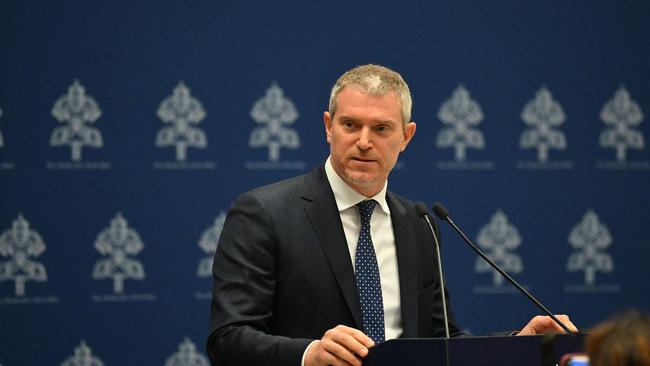
“On Thursday January 5, at 9:30 am (7.30 pm AEDT) the funeral is expected to take place in Saint Peter’s Square, presided over by the Holy Father,” Mr Bruni told journalists at a briefing following the death.
Pope Benedict: A Christian gentleman of the old school. An obituary by Cardinal George Pell
Catholics lose a powerful intellect: Tess Livingstone
The Catholic Archbishop of Sydney, Anthony Fisher, said the Pope Emeritus was “a man of towering intellect and deep piety [and] was influential as a peritus (expert adviser) at the Second Vatican Council and in the subsequent interpretation and implementation of the Council’’.
Archbishop Fisher added: “Pope Benedict XVI holds a special place in the hearts of Catholics in Australia where he is remembered as ‘the World Youth Day Pope’. In 2008 he gathered with hundreds of thousands of young pilgrims in our harbour city for catechesis and worship.
“Pope Benedict’s connection to Australia was strengthened in 2010, when he canonised St Mary of the Cross Mackillop as Australia’s first recognised saint.’’
British Prime Minister Rishi Sunak said Saturday that he was “saddened” by the death of the former pope, calling him a “great theologian”.
“I am saddened to learn of the death of Pope Emeritus Benedict XVI,” Mr Sunak tweeted. “He was a great theologian whose UK visit in 2010 was an historic moment for both Catholics and non-Catholics throughout our country.”
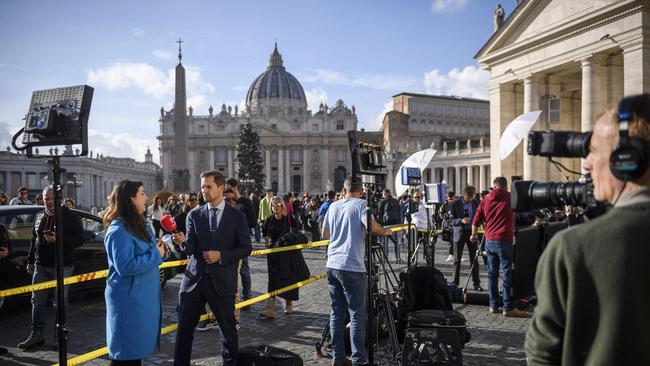
Italian Prime Minister Giorgia Meloni on Saturday hailed ex-pope Benedict XVI as a “giant of faith and reason” following his death at the age of 95.She said she had told current Pope Francis that she and her government shared his pain at the passing of “a Christian, a pastor, a theologian, a great figure in history, that history will never forget”.
France’s President Emmanuel Macron praised him for his work towards a “more brotherly world”.“My thoughts are with the Catholics of France and the world, bereaved by the departure of his holiness Benedict XVI, who strove with soul and intelligence for a more brotherly world,” he wrote on Twitter.
Russian President Vladimir Putin hailed the late pope as a “defender of traditional Christian values”.
“Benedict XVI was an eminent religious and state figure, a convinced defender of traditional Christian values,” he wrote in a message of condolence to Pope Francis, released by the Kremlin.
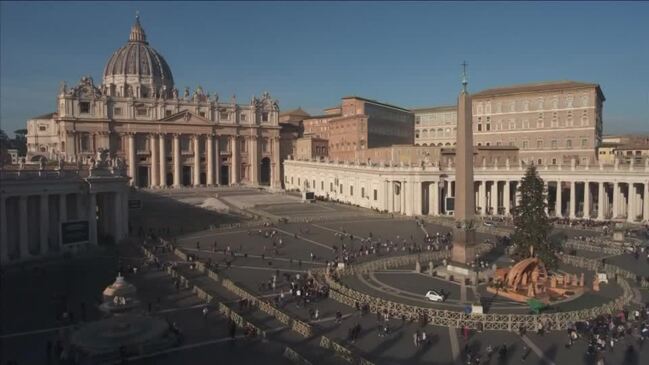
The German pontiff, an introverted academic who usually appeared ill at ease at the centre of attention, emerged as a controversial champion of traditional teachings and worship decades before his accession to the papacy.
As the Vatican’s anti-abuse czar under Pope St John Paul II, he oversaw more stringent discipline for abusive clergy, but found himself accused in 2022 of covering up abuse early in his career as a bishop.
In his roles as a prolific writer on theology, the Vatican’s top doctrinal official and eventually as the head of the church, Benedict argued for the compatibility of a transcendent faith in Jesus Christ with human reason, and for the continuity with tradition of the modernising changes in the church that followed the Second Vatican Council of 1962-65.
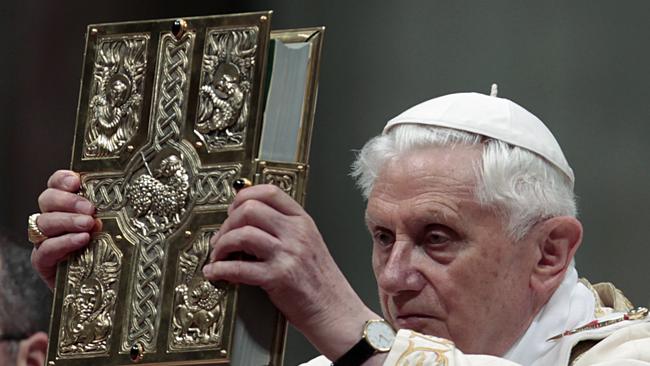
As Father Joseph Ratzinger, he served as an influential adviser during Vatican II, as the council is known, and his death now removes the last major theologian associated with that pivotal event in 20th-century church history. But he later became a critic of progressives who, he said, had misinterpreted the council as a break with past doctrine and practice.
As cardinal and then pope, he reaffirmed contested traditional teachings on sexuality and bioethics and disciplined theologians who sought to reconcile the Gospels with Marxism. In 2007, Benedict removed post-Vatican II restrictions on use of the traditional Latin Mass —- a liberalisation that his successor largely undid in 2021.
One of his major themes was the need to defend a faith grounded in definitive truths, as opposed to what he called, in a homily on the eve of his election to the papacy, a contemporary “dictatorship of relativism”.
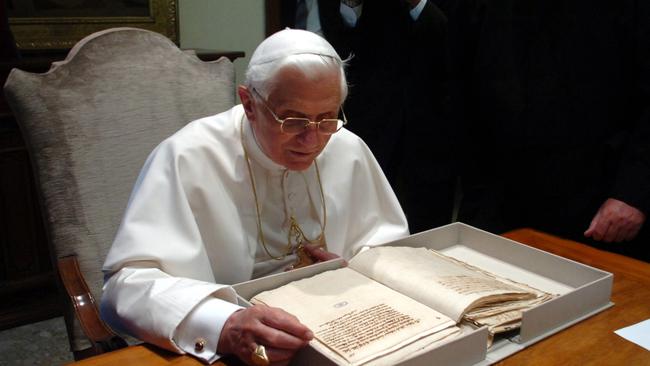
Cardinal Ratzinger oversaw the Vatican’s disciplining of clergy who sexually abused minors for more than two decades, pushing successfully for church law to make it easier to punish and remove abuser priests. As pope, Benedict extended the statute of limitations for the abuse of minors. By contrast with John Paul, who never met with abuse victims, Benedict met several times with groups of victims during his travels, including to the US in 2008.
But late in his post-papacy, criticism of his earlier record blotted his reputation on the matter. A church-sponsored report published earlier this year accused him of covering up abuse during his time as archbishop of Munich-Freising, Germany.
His lawyers disputed the charges, saying that in none of the cases in question did the future pope know that the priests were suspected of sexual abuse. The retired pope expressed profound shame for his failures as a church leader but didn’t admit wrongdoing.
Benedict’s death ends the unique situation in Catholic Church history of two popes living practically side-by-side in the Vatican.
Their coexistence was for the most part harmonious. Pope Francis likened his predecessor to a grandfather and made frequent gestures of extraordinary respect for him. When Francis elevated men to the rank of cardinal, he regularly led them on a visit to the retired pope to ask for his blessing.
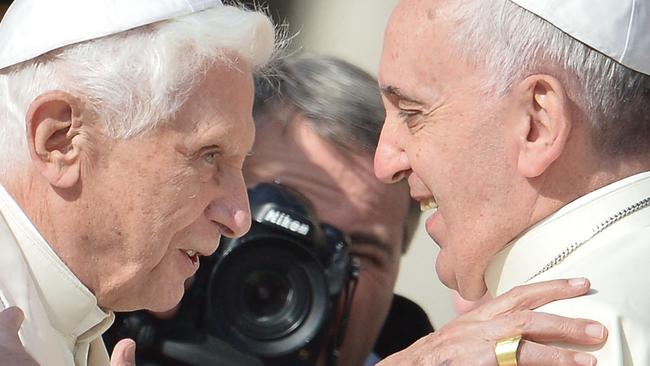
There were moments of tension. After Benedict’s private secretary, Archbishop Georg Gänswein, suggested in 2016 that Francis and Benedict were simultaneously living out different dimensions of the papacy, likening them respectively to the active and contemplative members of a religious order, Pope Francis stated that “there is only one pope”.
Some of the retired pope’s occasional writings also stirred controversy. He suggested in a 2019 article that the 1960s sexual revolution was a major cause of the church’s clerical sex abuse, by contrast with Pope Francis, who has emphasised excessive deference to clergy as a major factor in the abuse crisis.
Benedict co-wrote a 2020 book defending the tradition of priestly celibacy, which drew complaints that he was trying to influence his successor, who was at that time considering whether to loosen the requirement. Benedict asked for his name to be removed as the book’s co-author.
Some found the symbolism of a retired pope in the Vatican — still known as “His Holiness” and wearing the white papal cassock and skullcap, though he gave up the shoulder cape worn by the reigning pontiff — dangerously confusing. Both conservative and progressive critics of the arrangement called for new rules to govern such a situation.
Earlier this year, Pope Francis told the Spanish-language broadcaster Televisa that he would do things differently if he himself were to retire. He said he wouldn’t live in the Vatican but perhaps in Rome, and that he would consider himself “the emeritus bishop of Rome” rather than use Benedict’s title of pope emeritus.
Pope Francis also said the protocols for papal retirement need to be better regulated.
“The first experience went rather well because [Benedict] is a saintly and discreet man, and he handled it well,” Pope Francis said. “But in the future, things should be delineated more, or things should be made more explicit.” The retired pope’s death may now have made it easier for his successor to promulgate such regulations.
The Wall Street Journal


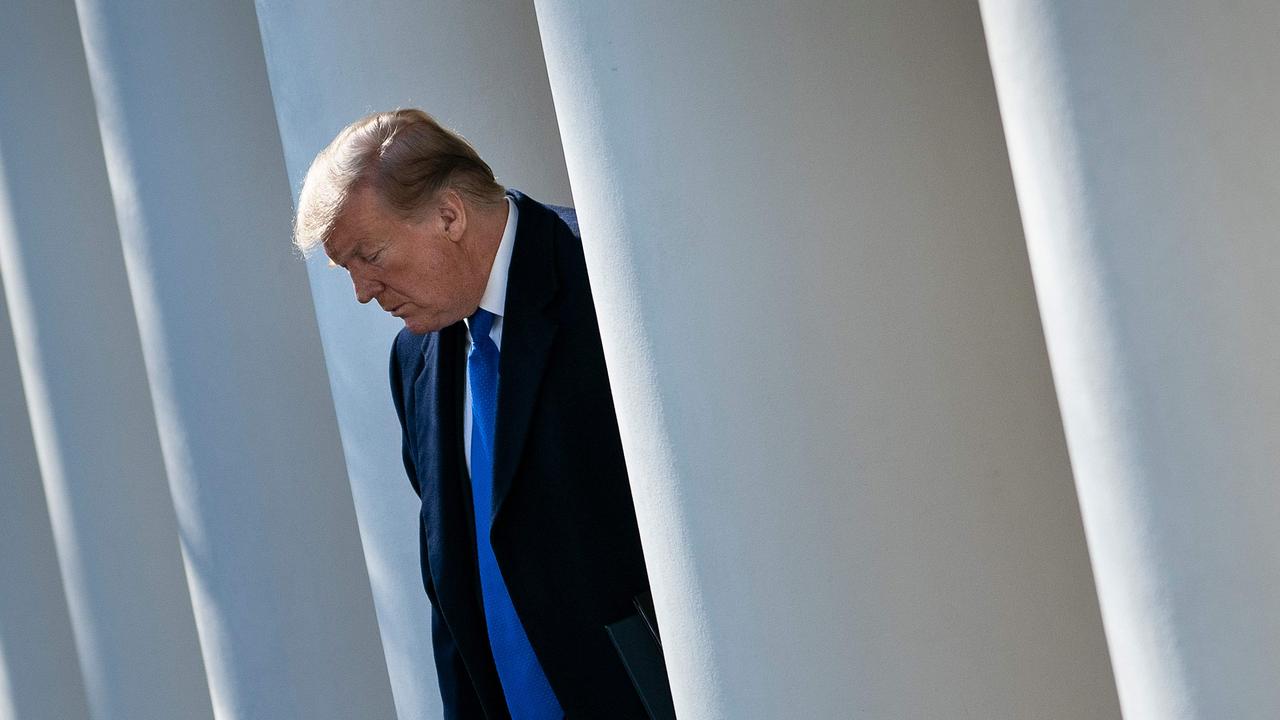
To join the conversation, please log in. Don't have an account? Register
Join the conversation, you are commenting as Logout